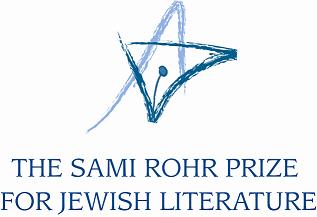Join a community of readers who are committed to Jewish stories
Sign up for JBC’s Nu Reads, a curated selection of Jewish books delivered straight to your door!
Posted by Naomi Firestone-Teeter
 Second up in “Words from our Finalists”…Julie Orringer
Second up in “Words from our Finalists”…Julie Orringer
Julie…meet our Readers
Readers…meet Julie
What are some of the most challenging things about writing fiction?

At the moment, because I have a nine-month-old son, the most challenging thing is finding enough time to work. But every new piece I’ve written has been uniquely challenging; in The Invisible Bridge, one of the greatest difficulties was learning to balance the story’s historical elements with its fictional ones.
What or who has been your inspiration for writing fiction?
My grandfather’s experiences inspired me to write this novel. But my day-to-day inspiration is my husband, Ryan Harty, who’s also a fiction writer. He knows how to make a schedule and stick to it, and he holds me to a very high standard — he’s an early reader of my drafts, and lets me know when something’s not working.
Who is your intended audience?
Anyone who likes to read. But I think we all hope to reach readers whose lives are similar to those of our characters. It’s been particularly moving to have former Hungarian forced labor inmates come to readings and tell me that their experiences mirrored the ones I describe in the novel.
I’m working on a novel about Varian Fry, the New York journalist who went to Marseille in 1940 to save nearly two thousand Jewish and anti-Nazi writers, artists, and intellectuals who’d been blacklisted by the Gestapo. I learned about Fry while I was researching The Invisible Bridge, and it was clear that his story would take an entire novel to tell. The novel pursues a fictional line alongside Fry’s real-life experiences.Are you working on anything new right now?
What are you reading now?
I just finished rereading David Bezmozgis’s wonderful collection, Natasha and Other Stories, about a community of Russian Jews in Toronto, and recently picked up Karen Russell’s Swamplandia!, about a fantastical alligator theme park in Southern Florida.

When did you decide to be a writer? Where were you?
In college, when my poor grades in chemistry, calculus, physics, and biology made it clear that I wasn’t cut out to be a doctor, I made a dire confession to my doctor parents: I was terribly jealous of all my friends who were taking writing and film and language classes, and I wanted to switch my major to English and see if I might study creative writing in graduate school. They claimed to have known all along that I’d take that direction. If only they’d told me sooner!
What is the mountaintop for you — how do you define success?
Showing up for work and getting the words down, and then revising them so they seem to express the original idea more exactly. In the case of The Invisible Bridge, that meant taking three years to write a first draft and three more years to revise it.

How do you write — what is your private modus operandi? What talismans, rituals, props do you use to assist you?
In the morning I go to the little room my husband and I rent in the building next door, unload my computer and books, and get down to it. I’ve got a bulletin board above the desk where I like to tack photos of the places I’m writing about, or of people who look like they might be characters in the book; I pace a lot, take walks, do research, return to the computer, wrestle with lines. In general I try not to revise the earlier parts of a draft too extensively until I’ve finished the whole draft. Before my baby was born, I was working about seven or eight hours a day, but until he gets a little older, I’ll be happy with three or four.
What do you want readers to get out of your book?
I’d like readers to know what happened to Hungarian Jews during the war: in other words, to feel what it might have been like to have one’s entire life — one’s aspirations, concerns, and connections — swept away in an instant, and then to have to find a way to keep living.
You can read more about Julie Orringer by visiting her website: http://www.julieorringer.com/
Originally from Lancaster, Pennsylvania, Naomi is the CEO of Jewish Book Council. She graduated from Emory University with degrees in English and Art History and, in addition, studied at University College London. Prior to her role as executive director and now CEO, Naomi served as the founding editor of the JBC website and blog and managing editor of Jewish Book World. In addition, she has overseen JBC’s digital initiatives, and also developed the JBC’s Visiting Scribe series and Unpacking the Book: Jewish Writers in Conversation.